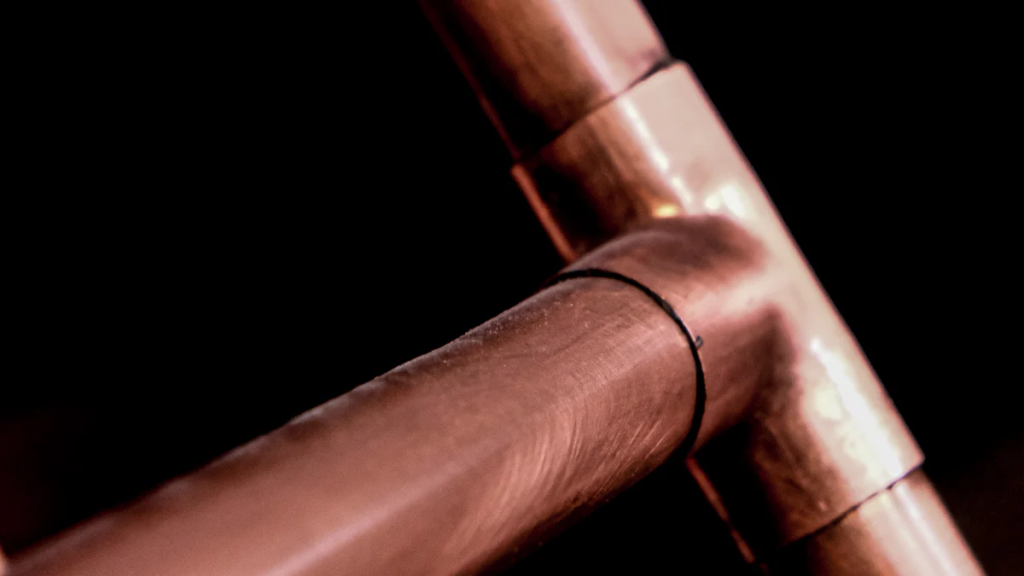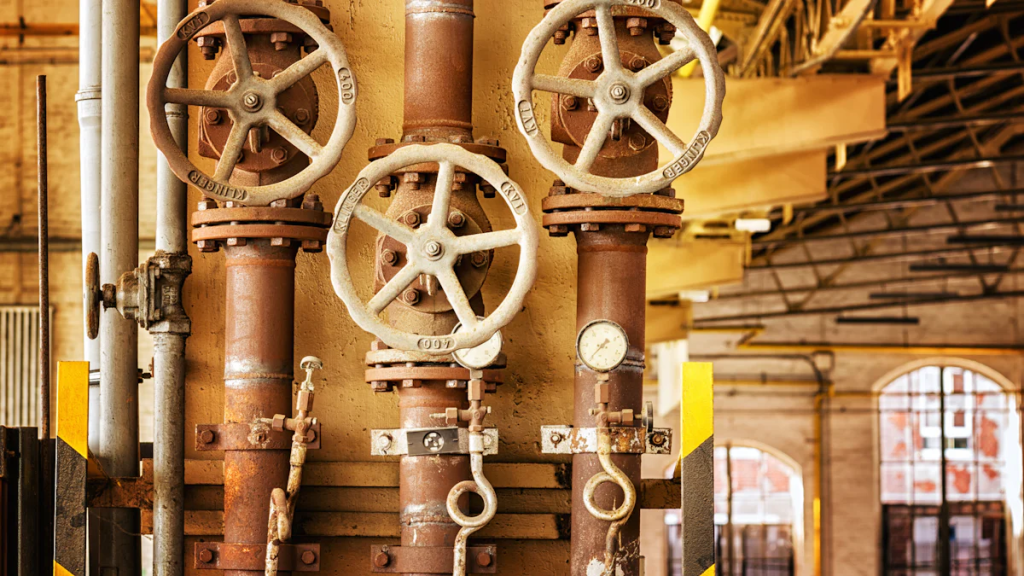What Makes Copper Pipes Special?
Copper pipes play a crucial role in the plumbing systems of our homes, offering a range of benefits that make them a popular choice for many homeowners.
The Role of Copper Pipes in Our Homes
Why Choose Copper?
Copper pipes have demonstrated superior control of waterborne bacteria, which makes them an excellent choice for ensuring the health and safety of your household water supply. Scientific research has shown that copper plumbing tubes inhibit certain viruses and bacteria, like Polio Virus and Legionella Pneumophilia. In fact, a study conducted by KIWA, the Dutch water quality research institute, found that the concentration of Legionella in water from copper pipes was ten times less than in cross-linked polyethylene pipes (PEX).
Copper Pipes Through the Years
The enduring reliability and longevity of copper pipes are underscored by their historical usage in plumbing systems. Its widespread adoption in the developed nations of Europe and America over numerous decades reinforces the persistent confidence in copper for its durability and superior performance characteristics.
The Benefits of Using Copper Pipes
Durability and Reliability
One of the key benefits of using copper pipe is its exceptional durability and reliability. Properly installed copper pipes can last 50 to 70 years on average, providing long-term peace of mind for homeowners. This longevity far exceeds that of many other piping materials, making copper an ideal choice for those seeking a reliable plumbing solution.
Health and Safety Features
In addition to their durability, copper pipes offer significant health and safety advantages. Research has shown that copper is naturally better for health than plastic pipes, as it controls bacteria in water and reduces viruses such as Polio, Legionnaire’s disease, and E-Coli. Furthermore, studies have revealed that even water exposed to copper overnight exhibited positive effects on controlling bacteria. These findings highlight how copper pipe not only ensures the structural integrity of your plumbing system but also contributes to safeguarding your household’s health.
How Long Do Copper Pipes Last?
Copper pipes are renowned for their exceptional longevity, providing a reliable plumbing solution for households. Understanding the average lifespan of copper pipes is crucial for homeowners to make decisions about their plumbing systems.
The Average Lifespan of Copper Pipes
When properly installed and maintained, copper pipes can last up to 50 years on average before needing replacement. This impressive longevity sets copper apart from other materials used in plumbing systems. In comparison, other materials such as PEX piping have a significantly shorter lifespan, typically ranging from 25 to 40 years. Additionally, copper tubes come with a 50-year warranty, offering homeowners peace of mind regarding the durability and reliability of their plumbing infrastructure.
In real-life scenarios, there are numerous success stories of long-lasting copper pipes in homes and cities. Homeowners often attest to the enduring performance of copper plumbing systems that have remained functional for several decades without issues. These success stories serve as testaments to the exceptional durability and longevity that copper pipes offer.
Real-Life Expectancy: Stories from Homes and Cities
Many homeowners have experienced firsthand the benefits of choosing copper pipes for their plumbing needs. Success stories abound, with individuals sharing accounts of how their copper piping has remained robust and leak-free for over five decades. These anecdotes underscore the remarkable resilience and endurance that copper pipes exhibit in real-world settings.
However, there may come a time when replacement becomes necessary due to wear-and-tear or changes in household requirements. While copper pipes boast an impressive average lifespan, it’s essential for homeowners to monitor the condition of their plumbing systems and recognize when replacement is warranted. By staying proactive and attentive to the signs of aging pipes, homeowners can ensure the continued efficiency and reliability of their plumbing infrastructure.
Qingdao Sunrise New Materials Co., Ltd., commonly known as Sunrise New Materials, is a prominent international supplier of steel and non-ferrous metal raw materials. The company has a strong commitment to delivering reliable and satisfactory customized supply solutions for a wide range of steel and metal products to a global customer base. As a comprehensive one-stop supplier, Sunrise New Materials has garnered the status of the preferred provider for steel and fiberglass products among numerous customers across over 100 countries and regions, including Europe, the Middle East, South America, and Africa.
Sunrise New Materials has established a robust supply chain network and maintains long-term cooperative relationships with major steel mills such as Baosteel, Taiyuan Iron and Steel, and POSCO, ensuring access to high-quality products and services.
Factors Affecting the Lifespan of Copper Pipes
Copper pipes are renowned for their longevity and durability, but several factors can influence their lifespan. Understanding these factors is crucial for homeowners seeking to maximize the longevity of their plumbing systems.
The Impact of Water Quality on Copper Pipes
Chemical Reactions and Corrosion
The quality of water flowing through copper pipes plays a significant role in determining their lifespan. Scientific research has revealed that certain water conditions can accelerate corrosion in copper piping. For instance, a study published in the AWWA Journal in 1985 found that even low concentrations of free chlorine or chloramine, as little as one part per million (ppm), could reduce the lifespan of copper piping to three to five years under specific conditions. This highlights the susceptibility of copper pipes to chemical reactions induced by water disinfection agents, emphasizing the need for careful consideration of water chemistry when installing copper plumbing systems.
Furthermore, adjustments to water chemistry and the addition of corrosion inhibitors have been identified as effective solutions for reducing corrosion and copper concentrations in water. By addressing these factors, homeowners can mitigate the impact of chemical reactions and prolong the lifespan of their copper pipes.
How Hard Water Affects Copper
In addition to chemical reactions, hard water poses another challenge to the longevity of copper pipes. Hard water contains high levels of minerals such as calcium and magnesium, which can lead to mineral deposits within plumbing systems. Over time, these deposits can restrict water flow and contribute to corrosion within copper pipes, potentially shortening their lifespan.
To address this issue, homeowners should consider implementing water softening solutions or periodic maintenance to minimize the impact of hard water on their copper pipes. By proactively managing these factors, individuals can ensure that their plumbing infrastructure remains robust and functional for an extended period.
Installation and Maintenance: Keys to Longevity
The Importance of Professional Installation
Proper installation is paramount in maximizing the lifespan of copper pipes. When installed by certified professionals, copper pipe systems are positioned for long-term performance and durability. Professional installers possess the expertise to adhere to industry best practices, ensuring that copper pipes are fitted securely and effectively within plumbing systems. This meticulous approach minimizes the risk of leaks or structural issues that could compromise the integrity of copper pipes, thereby contributing to their extended lifespan.
Routine Checks and Maintenance Tips
Regular maintenance is essential for preserving the longevity of copper pipes. Homeowners should conduct routine checks on their plumbing systems, including inspecting for signs of corrosion or leaks. Additionally, implementing preventive measures such as flushing out mineral deposits from copper pipes can help maintain optimal functionality over time.
Furthermore, adhering to a maintenance schedule recommended by professionals ensures that any potential issues with copper pipes are promptly addressed before they escalate into more significant problems. By prioritizing regular maintenance, homeowners can safeguard the longevity and reliability of their plumbing infrastructure.
Taking Care of Your Copper Pipes
After investing in copper pipes for your home’s plumbing system, it’s essential to implement preventive measures to ensure their longevity and functionality. By incorporating simple daily practices and knowing when to seek professional assistance, homeowners can maintain the optimal performance of their copper pipes.
Preventive Measures for a Longer Lifespan
To enhance and preserve the longevity of copper pipes, incorporating routine practices is essential. It is imperative to conduct regular inspections on accessible segments of your piping system for indications of corrosion or leakage. Additionally, maintaining water pressure within prescribed limits is crucial to avoid undue stress on your copper piping system. By putting these preventive strategies into place, you not only protect the structural integrity of your plumbing infrastructure but also extend the functional lifespan of your copper pipes.
Simple Daily Practices
- Conduct visual inspections for signs of corrosion or leaks in your copper pipes.
- Monitor and regulate water pressure to prevent undue stress on the piping system.
- Implement routine checks for any irregularities in water flow or quality, which could indicate potential issues with the copper pipes.
When to Call a Professional
If you notice any concerning issues with your copper pipes, such as persistent leaks, reduced water pressure, or visible signs of corrosion, it’s advisable to seek professional assistance promptly. Certified plumbers possess the expertise and tools necessary to diagnose and address potential problems with copper pipes effectively. Timely intervention by professionals can mitigate further damage and prolong the lifespan of your plumbing infrastructure.
Planning for the Future: Replacement and Upgrades
Recognizing the signs of aging copper pipes is vital for homeowners looking to plan ahead and ensure continued functionality within their plumbing systems. Additionally, considering upgrades when necessary can contribute to maintaining an efficient and reliable plumbing infrastructure.
Recognizing the Signs of Aging Pipes
It’s important for homeowners to be vigilant about identifying indicators that their copper pipes may be reaching the end of their lifespan. These signs may include persistent leaks, discoloration in water quality, or noticeable corrosion on exposed sections of piping. By promptly addressing these warning signals, homeowners can take proactive steps towards ensuring the ongoing reliability of their plumbing systems.
Considering Upgrades: Is it Time for a Change?
In some cases, upgrading your plumbing system may be a prudent decision to enhance efficiency and address aging infrastructure. When contemplating upgrades, consider consulting with certified professionals who can provide insights into modern solutions that align with your household’s requirements. Evaluating potential upgrades allows homeowners to make informed decisions about enhancing their plumbing infrastructure while prioritizing durability and longevity.








